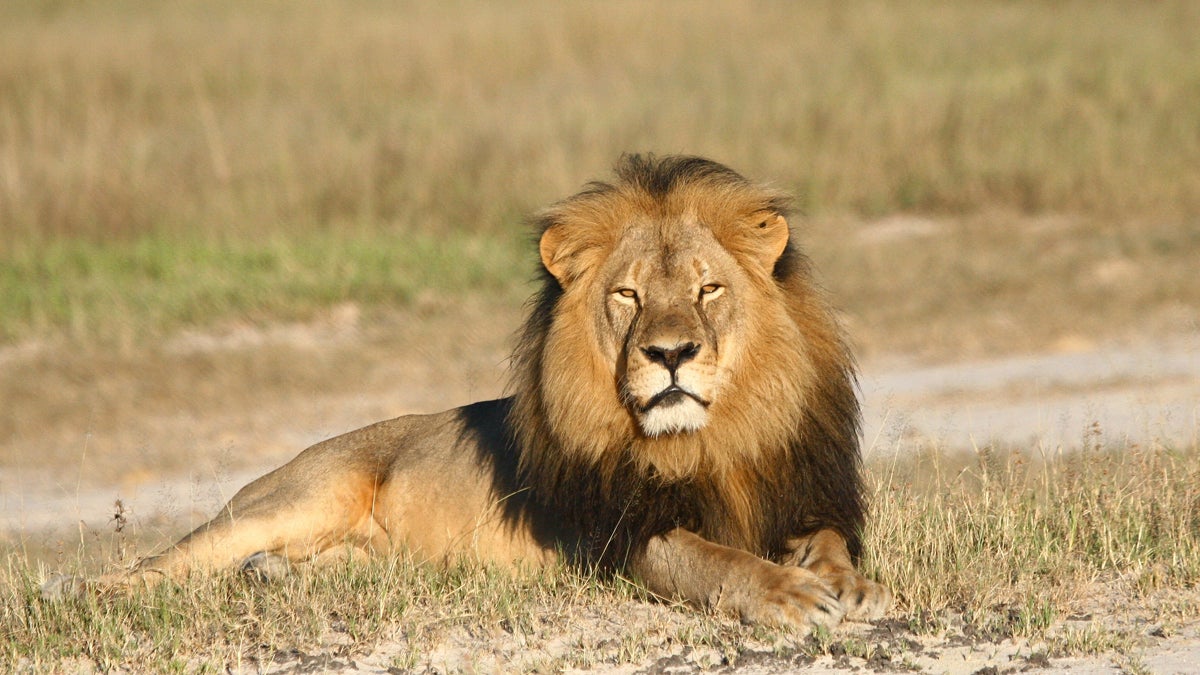If only police shooting victims were lions

In this undated photo provided by the Wildlife Conservation Research Unit, Cecil the lion rests in Hwange National Park, in Hwange, Zimbabwe. Two Zimbabweans arrested for illegally hunting a lion appeared in court Wednesday, July 29, 2015. The head of Zimbabwe’s safari association said the killing was unethical and that it couldn’t even be classified as a hunt, since the lion killed by an American dentist was lured into the kill zone. (Andy Loveridge/Wildlife Conservation Research Unit via AP)
If only they were lions.
Perhaps then we would shed tears in sympathetic remembrance.
But alas, they were people, not lions, and though they were just as endangered, their deaths did not elicit widespread sympathy. In fact, their deaths were met with an endless string of cynical questions.
Why weren’t they more compliant? Why didn’t they put out the cigarette? Why did they try to assert their rights? Why did they talk back?
I’ve heard those kinds of questions whenever an unarmed person of color has died at the hands of police. Attacks on the victims’ character usually follow.
Tamir Rice, a 12-year-old shot dead while playing with a toy gun, was called a thug. Walter Scott, shot in the back while unarmed and fleeing, was called a threat. And in the latest case, Samuel Dubose, shot in the head during a car stop, was accused of trying to mow down University of Cincinnati Police Officer Ray Tensing with his vehicle. Body cam video told a different story, and Tensing was indicted for murder.
None of these victims were perfect people, but their deaths were perfectly senseless. Even in the rare cases where their killers were indicted, however, the victims’ character was assailed, their names were smeared, and strangers callously blamed them for their own deaths.
This is in stark contrast to the outrage that has followed the death of Cecil, a 13-year old lion killed needlessly—and perhaps illegally—by a trophy-seeking American dentist in Zimbabwe. Two men in Zimbabwe were immediately arrested, the dentist was roundly condemned, and late night talk show host Jimmy Kimmel shed tears on national television.
While I share the indignation regarding the killing of a helpless animal, I can’t help wondering about the lack of sympathy in the deaths of actual human beings.
These were people who were unarmed and posed no threat; people who were no more deserving of death than an animal.
But they were black, and as uncomfortable as that truth might be, it is a fact we must face, and a problem we must solve.
When the senseless death of an animal elicits more emotion than the unjust death of an unarmed human being, our society is upside down, and we must do what it takes to turn things right side up.
That means acknowledging what the Bureau of Justice Statistics has already told us—that blacks are more likely than Hispanics or whites to be subjected to use of force by police. It means abandoning the kneejerk reaction that allows too many to say that it’s not about race. It means looking at ourselves with clear-eyed honesty and acknowledging that we must change.
If ours is still a society in which black life has little or no value, we have no right to criticize others who engage in human rights violations. If ours is still a society in which all citizens do not have the expectation of equal treatment under the law, then we have no right to point the finger at despots.
If ours is a society in which the life of an animal is worth more than the life of a human being, then perhaps we are not a society at all.
WHYY is your source for fact-based, in-depth journalism and information. As a nonprofit organization, we rely on financial support from readers like you. Please give today.


